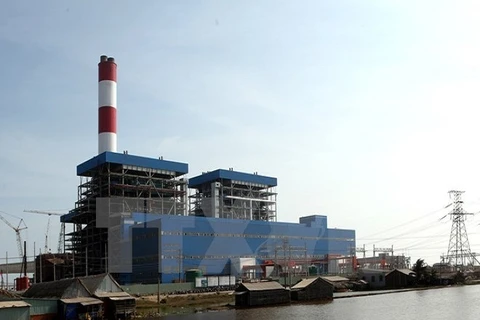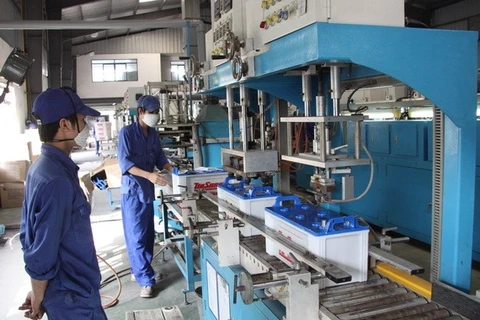Hanoi (VNA) – Economic restructuring outcomes so far remain modest and have yet to create favourable conditions to shift to a good growth model, according to the 2016 Vietnam economic report of the National Economics University.
The annual report, unveiled at a scientific workshop on March 16, examined the real situation of the country’s economy in 2016 with a focus on economic restructuring associated with growth model reform and the role of the development-facilitating State.
While sharing the assessment on the positive signs of the economy as specified in the National Assembly’s Resolution 23/2016/QH14, the report noted that the country failed to meet the economic growth rate target for 2016, the growth rate was lower than the 2015 figure while inflation was higher, and public debt was already close to the ceiling, signaling looming macro-economic risks.
Regarding economic restructuring, the report recognized the initial outcomes such as improved growth effectiveness and economic growth’s positive impacts on social progress.
However, the country’s economic growth was still largely based on capital and foreign investment, the report said, adding that the private sector remained weak and the State sector failed in its leading role of the economy.
The report envisioned two growth scenarios for Vietnam in 2017, with projected growth rates at 6 percent and 6.6 percent.
It suggested the country should increase investment in hi-tech agriculture, devise more policy support for private businesses, improve the quality of State-owned enterprise equitisation, and develop processing and manufacturing industries.
It is necessary to invest more strongly in high-quality resources, including technology and manpower, and ensure growth’s positive impacts on social aspects by enforcing harmonious growth policies, the report said.
Vice Chairman of the Party Central Committee’s Economic Commission Nguyen Ngoc Bao said the most important thing at present is to create a fair business environment for all stakeholders in the economy.
Economic growth driving forces in 2017 includes the private sector, domestic consumption, foreign direct investment, and infrastructure investment. Meanwhile, regulation bottlenecks in land will also become growth momentum if they are removed, he added.
Regarding the building of a development facilitating Government, Do Thanh Huyen, Policy Analyst on Public Administration Reform and Anti-Corruption at UNDP Vietnam, said the administrative apparatus should be streamlined while the issued policies must be seriously implemented. Additionally, State agencies should listen to and regularly hold dialogue with the public while monitoring activities of all-level authorities.-VNA
VNA























